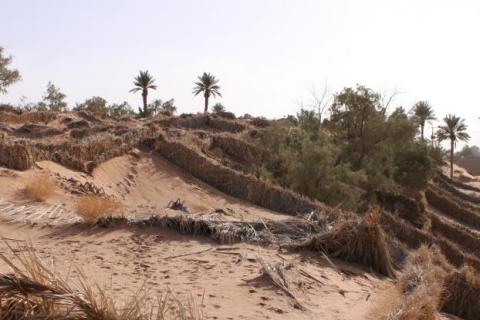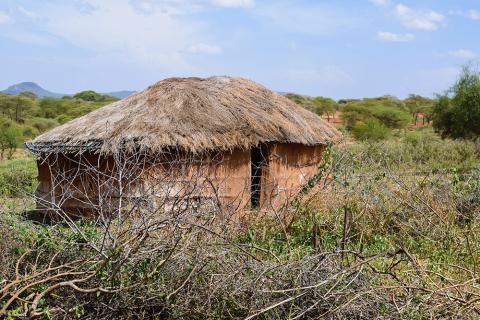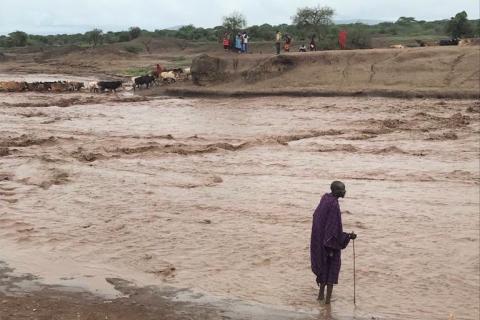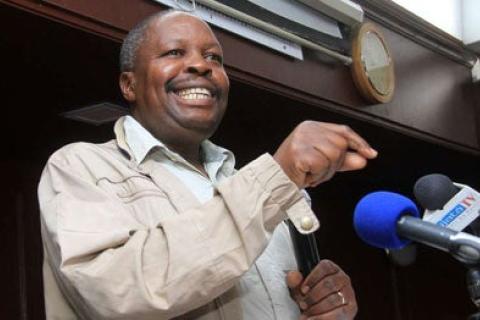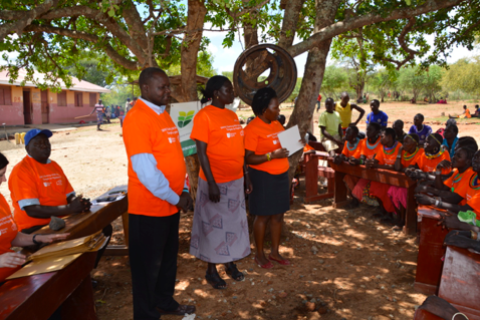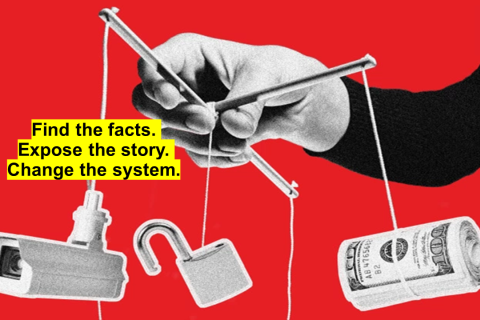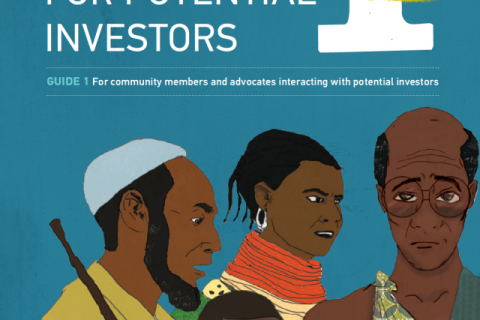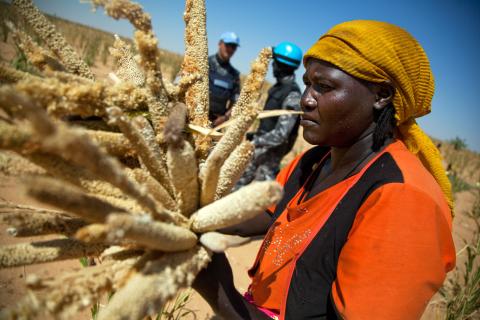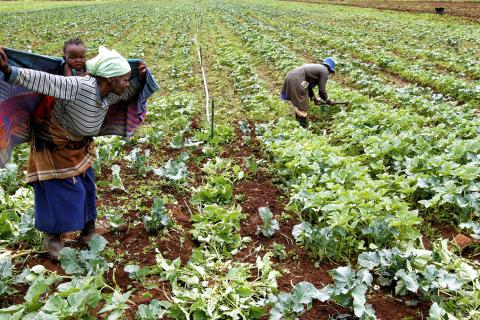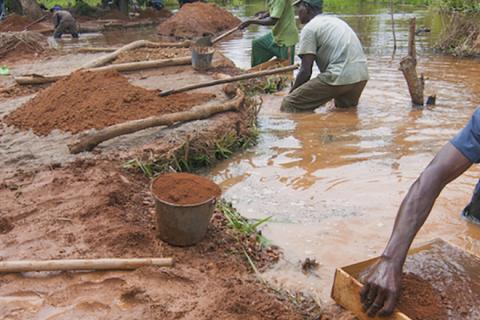How Anna Letaiko Got Her Land
Anna Letaiko is a middle-aged woman with a soft voice that carries wisdom and strength. Her husband is an older man, and together they live in small mud house in Mundarara – a remote village in Longido district in Tanzania, accessible only by a rough dirt road. It is a Maasai community similar to the one in which I grew up, except that the community’s livelihood is based on mining and pastoralism while my community still depends on farming and pastoralism.
I met Anna through my work with WOLTS – a five-year action research project on women’s land rights in pastoral communities that are affected by mining. As a speaker of the Maasai language, my job is to facilitate and translate in training sessions and help develop training materials.
In Maasai culture, it is very rare for women to own land. Men see themselves as owning land on behalf of the whole family. If women do apply for land, they usually apply in the name of their husband or son.
However, the law in Tanzania (Land Act, 1999, and Village Land Act, 1999) grants women and men the same rights to land access, ownership and control. The law also says that women have the same rights in decision-making over land. What Maasai customs mean in practice is that women are denied the right to apply for land and own it themselves.
During our research we heard that, when women in Mundarara applied for land in their own names, their applications were ignored, not taken seriously, and even thrown away. Some women were even asked for sex in exchange for land documents.
Our aim through the WOLTS project is to support the community to find their own solutions to land rights problems. To help them achieve this, we asked them to select community ‘champions’ who would be trained in land rights, mining laws, investment laws, mineral valuation and legal procedures for licence applications, as well as gender-based violence.
Anna was one of the first champions to be trained in Mundarara. When we first started working in the community, Anna did not even know that she had the right to own land. After the WOLTS training sessions, she put in an application, and it was taken seriously.
A few months later, Anna received a small plot near the village centre where she wants to build a modern house. As a trained champion for gender equity, she has promised to help other women by raising awareness and assisting them to become land owners like herself.
The growth of artisanal mining in Mundarara has brought many changes to the community, including giving families new sources of income. Women are finding that they have more opportunities to earn money and participate in community and family decision-making, including through land ownership.
Documenting and sharing Anna Letaiko’s story reminded me how quickly life is changing in pastoral districts due to factors like mining. I hope it will inspire readers, raise the voices of less fortunate groups, and improve everyday life in communities similar to my own.
Putting research into action - one muddy step at a time
I write this blog as our project team embarks on a fifth year of work on women’s land tenure security (WOLTS) with pastoral communities in mining-affected areas of Mongolia and Tanzania. Just before Christmas 2019, we were in Mundarara village in northern Tanzania. Exceptionally heavy rains made getting around much more challenging than usual. Locals travelling on foot had to make wide detours to avoid getting bogged down in waterlogged grazing land, and it took everyone much longer to get to the village primary school for our long-planned training day.
Conference on Land Policy in Africa 2019: An Interview with Kenya Land Alliance's Odenda Lumumba
Next week the Conference on Land Policy in Africa - Winning the Fight against Corruption in the Land Sector: Sustainable Pathway for Africa’s Transformation, will take place in Abidjan. The African Union recognises that corruption is a key factor hampering efforts at promoting governance, socio-economic transformation, peace and security, and the enjoyment of human rights in the Member States.
Dispatch from the Field: Starting With Women in Uganda
For the past six months, Resource Equity has been working with our partner Associates Research Trust to implement our Starting With Women approach with subsistence mining associations in Karamoja, Uganda.
Investigate, Expose and Advocate: Stopping illegal environmental destruction and violence against human rights defenders
Bad-faith Contracts & Unjust Investments – How Can Communities Protect Their Interests?
Deciding whether or not to allow an investor to use community lands and natural resources is one of the most important decisions a community can make. Namati and the Columbia Center on Sustainable Investment (CCSI) have published two new guides to help communities prepare for interactions with investors and, if they so wish, negotiate fair, equitable contracts. These guides are the first of their kind.
A visit to displaced communities in north Honduras reminded me why we need Prindex
Malcolm Childress visited Honduras in April as part of a fact-finding and speaking delegation sponsored by the US State Department.
On the northern coast of Honduras, palm forests give way to white sands, blue seas and one of the world’s most spectacular coral reefs. But, in a story that will be familiar to observers of land rights worldwide, that beauty has brought developers eager to build, and conflict around the ownership of land occupied and claimed by longstanding Garifuna communities.
Educating Changemakers About Sextortion in Land Governance
Sextortion: referring to a form of blackmail in which sexual information or images are used to extort sexual favors from the victim. One of the biggest challenges for those working in the land and natural resources sector, has been drawing attention to the fact that this happens in our sector, too and most importantly, that something needs to be done about it.
We cannot wait indefinitely – interim options for land reform
The failure to secure the property rights of rural communities shows a clear policy gap between citizens and rights to land as per the Constitution and the attitude and practices of the state, traditional leaders, white farmers and mining companies in relation to such rights.
Absent from the discourse spurred by the motion passed in the National Assembly on 27 February is what could be achieved in the interim for land reform programme using existing legislation while the country awaits a verdict on the constitutional amendment to determine whether is possible to expropriate land w
The Interface between Surface and Sub-Surface Rights in the Artisanal Mining Sector in West and Central Africa
The artisanal mining sector in West and Central Africa is a rapidly expanding economic force employing millions of young people, often those who are the most vulnerable. Numerous ancillary informal economies are associated with the export of what are commonly known as “conflict minerals” such as diamonds, gold and coltan. Women grow crops and process food for the labor force of young men digging deep into the ground to pull out the ore and precious metals and stones.

